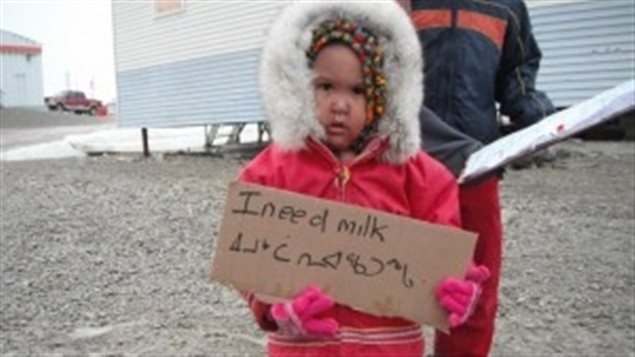Almost half of Inuit children in the Arctic territory of Nunavut are shorter than average and that could be due to widespread food insecurity, suggests new research.
The area is remote and difficult to access, so food brought in from the south is very expensive. Traditional food includes animals like caribou, char (a kind of fish), or seal is hunted, but ammunition and other supplies are also expensive and out of reach for some families.
Several previous studies have documented food insecurity in the north. A McGill University study found that in 2010, 41 per cent of Nunavut children between the ages of three and five had no food for an entire day or had parents who couldn’t afford to feed them at least part of the time.
The new study from the University of Laval is thought to be the first to examine physical consequences of hunger. Besides stunted growth, researchers found children from hungry families had a higher incidence of anemia.
The Canadian government gives money to grocery retailers for the shipment of food, but northerners doubt that actually brings down prices for them.







For reasons beyond our control, and for an undetermined period of time, our comment section is now closed. However, our social networks remain open to your contributions.